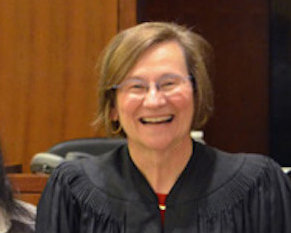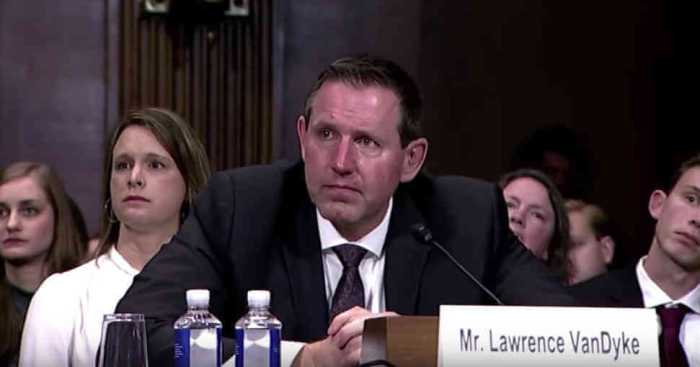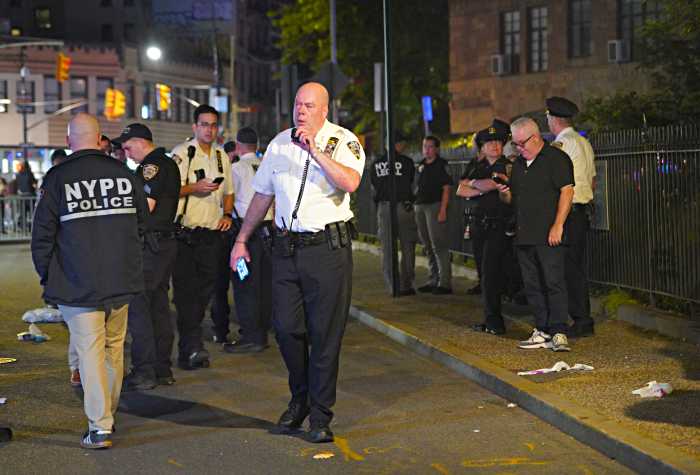Two federal appeals circuits handed victories in July to gay men seeking asylum in the US based on the danger of persecution they faced in their home countries — the Philippines in one case; Ukraine in the other.
On July 24, a unanimous panel of the San Francisco-based Ninth Circuit Court of Appeals ruled that the Board of Immigration Appeals (BIA) should not have reversed a ruling by an immigration judge (IJ) that Dennis Vitug, a gay man from the Philippines, was entitled to remain in the US based on the protection federal law provides immigrants subjected to persecution in their home countries. The appeals court backed up the IJ’s conclusion that Vitug demonstrated he had been persecuted and that the US government failed to show that conditions in the Philippines had changed sufficiently to overcome the presumption that the man would suffer further persecution if sent back there.
Writing for the panel, Judge Harry Pregerson pointed to the IJ's finding that Vitug credibly established he had been beaten and robbed five times in Manila “after being targeted as a homosexual,” had been harassed by police officers based on his “perceived sexual orientation,” and was unable to find a job “on account of his sexual orientation.”
“The police will not do anything to help gay men who report abuse but will rather ridicule them and tell them they deserve it,” the IJ wrote. “The government has failed or refused to protect gay men from persecution.”
Appeals court allows Philippine man to stay in US; Ukrainian given a new hearing
The IJ also concluded that Vitug might be subjected to torture if deported to the Philippines. As a result, the man was eligible for protection under the Convention Against Torture, an international treaty to which the US is a party, which requires the nation to give such a person refuge.
In a 2007 administrative review, the BIA, a Justice Department unit that is part of the Executive Branch not the judiciary, took the unusual step of reversing the IJ’s finding, in a decision fairly representative of the anti-gay bias it exhibited during the Bush administration.
“The BIA did not expressly find any of the IJ’s factual findings to be clearly erroneous,” according to Pregerson. Instead, the appeals board concluded that what Vitug showed failed to prove his treatment “rose to the level of past persecution” and that an attack against him by a man he met in a bar was merely a “crime of opportunity.” Noting that Vitug had actually returned to the Philippines after his first US visitor visa expired, the BIA also found that “the record does not support the conclusion that the [Philippine] government would be unable or unwilling to protect him.” The board also found a lack of evidence Vitug would face torture if he were to return to the Philippines.
After the BIA rejected Vitug’s motion for reconsideration, the case went to the federal judiciary. The Ninth Circuit found that the BIA overstepped its role, pointing out it is barred from “engaging in de novo review of findings of fact determined by an immigration judge.” The court concluded the BIA did exactly that, in what it found to be an abuse of discretion.
Typically, the Ninth Circuit would have sent this case back to the BIA with direction to apply the correct standard, but did not do so here because “substantial evidence does not support” the board’s decision to deny Vitug “withholding of removal,” a status allowing him to stay in the US. Once Vitug established that he is a victim of past persecution based on a protected ground — in this case, sexual orientation — the government can only prevail only if it can “show by a preponderance of the evidence that there has been a fundamental change in circumstances such that the petitioner’s life or freedom would not be threatened or that the petitioner could relocate internally within his home country to avoid persecution.”
On that score, the government failed. “No reasonable factfinder could conclude that the harm Vitug suffered did not rise to the level of persecution,” wrote Pregerson. Evidence of some gay activism in the Philippines and one municipal nondiscrimination ordinance “does not indicate that there is any less violence against gay men or that police have become more responsive to reports of anti-gay hate crime,” the appeals panel found.
While the Ninth Circuit agreed with the BIA that the IJ’s conclusion regarding Vitug’s risk of torture was not supported by the facts, it concluded that the evidence supported his grant of “withholding of removal.”
It is not without irony that this ruling is based on factual findings about the Philippines made in 2007. The huge backlog of asylum and related appeals means that these cases are often decided without any reference to possible gay rights advances in immigrants’ home countries in the years — six in the example of Vitug — it takes claims to be litigated. There are, of course, plenty of other ways in which the surreal environment of American immigration law works to the detriment of asylum seekers.
In the other recent appellate ruling involving a gay asylum seeker, the 11th Circuit Court of Appeals in Atlanta ruled July 8 that Oleksiy Okhremenko, a gay man from Ukraine, is entitled to have his asylum petition reconsidered. In this case, the court criticized the immigration judge’s conclusions about the petitioner’s credibility. The IJ discounted Okhremenko’s testimony that he was severely beaten by anti-gay skinheads outside a bar. Vacating the BIA decision upholding the IJ’s ruling, the appeals panel ordered that Okhremenko’s credibility be reevaluated “in light of this opinion.”
Okhremenko came to the US on a summer student visa in 2006 and 2007 and, after earning his university degree in 2008, returned here on a J-1 visa allowing him to participate in a student-exchange or work program. He then applied for asylum, contending he had been persecuted in Ukraine for being gay and feared future persecution if he returned.
At his asylum hearing, Okhremenko testified that he and a boyfriend he met while in school in Kherson frequently went to a bar called Beau Monde, which was known to be gay-friendly. Though he had heard stories that Beau Monde’s customers sometimes became targets of violence, he discounted them because he didn’t know anyone who personally experienced that and “did not want to spend his whole life in his apartment.” But, in March 2008, he testified, he and his boyfriend were attacked by anti-gay skinheads when leaving Beau Monde.
“The attackers hit them with baseball bats and yelled insults and threats related to their sexual orientation,” wrote the court, summarizing the asylum hearing record. “After physically assaulting Okhremenko and Pereschlyuha [his boyfriend], the skinheads stole the men’s wallets, cell phones, and jewelry. Both Okhremenko and Pereschlyuha were seriously injured. Okhremenko had a fractured right hand, two broken ribs, and head trauma. He was hospitalized for three weeks. When Okhremenko reported the attack to the police, an officer told him that if he did not want to be beaten again, he should not present himself in public as a homosexual.”
Okhremenko provided hospital records and three years of US State Department reports documenting the hostility toward gay people by Ukrainian officials and the population generally. He also submitted letters from friends and family members corroborating that he is gay, as well as newspaper articles describing the government’s anti-gay hostility.
In rejecting Okhremenko’s petition, the IJ found his testimony not credible because the hospital records were not sufficiently detailed and he failed to provide confirmation from his now ex-boyfriend regarding his account of the attack. The IJ also cited “inconsistencies” between Okhremenko’s written petition and his testimony at the hearing. But the court of appeals found that the IJ’s opinion contained blatant mischaracterizations of the evidence, including his conclusion that Okhremenko’s testimony about the anti-gay threats the skinheads shouted lacked credibility since he had not earlier provided these details in writing.
The IJ also found an inconsistency in Okhremenko’s testifying he did not personally know anybody who had suffered violence at Beau Monde while also claiming his boyfriend was beaten outside his apartment by somebody who recognized him as a Beau Monde customer. The appeals court found this was another case of the IJ mischaracterizing the asylum petitioner’s testimony, writing, “Read in context, Okhremenko’s testimony was not that he did not personally know anybody who had been attacked anywhere; it was that he did not personally know anybody who had been attacked at Beau Monde.”
The IJ, the appeals panel concluded, failed to provide “a specific, cogent reason” to reject Okhremenko’s credibility. It also rejected the IJ’s conclusion that the skinhead attack was a robbery and not an anti-gay assault. Though it concluded that the IJ’s findings were often “sheer speculation,” the appeals panel did not come right out and say the immigration judge had a bias against Okhremenko.
In its ruling, the 11th Circuit panel did not express any opinion about whether the Ukrainian’s testimony should be found credible or if he is entitled to asylum, but it did order the IJ and the BIA to provide a “specific, cogent” reason if they were to reject the petition.
Okhremenko must now show he was subject to persecution in Ukraine because he is gay and that he would face further persecution if returned there. The court of appeals’ summary of the record of his earlier hearing suggests his prospects for success are good.


































